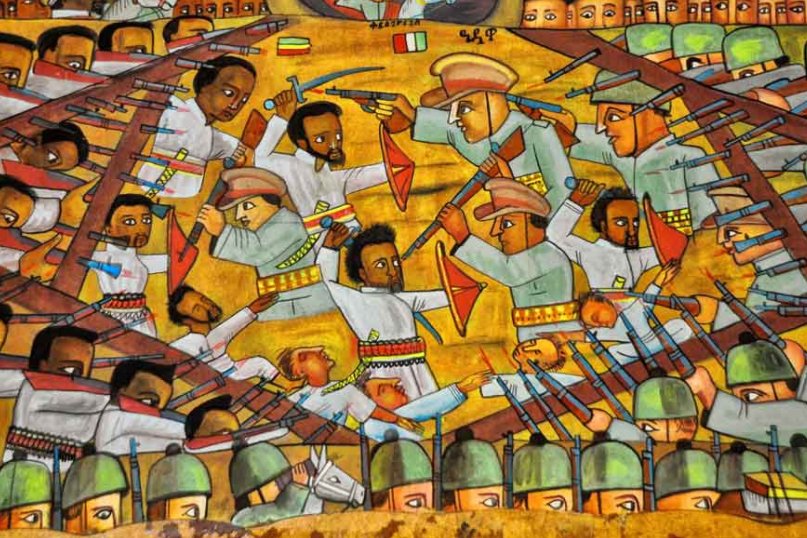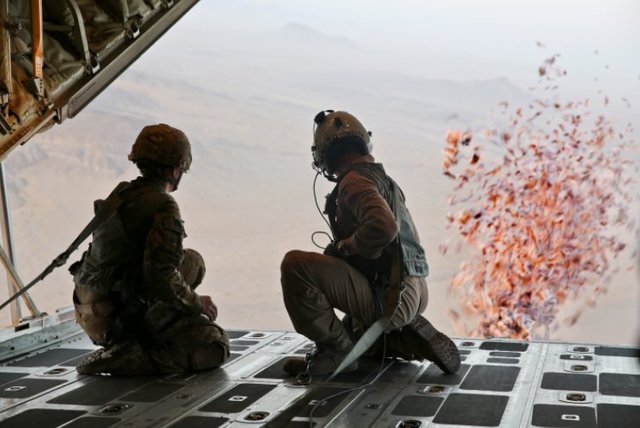ART of WAR - Information in Offensive & Defensive Applications

“Know your enemy, know yourself; one hundred battles, one hundred victories.”
This popular maxim from Sun Tzu’s Art of War provides the essence for information operations (IO). IO is the effort to increase the amount of true knowledge of a scenario while simultaneously impairing the adversary’s knowledge in order to create a strategic advantage for friendly participants. Because I link my definition to the concept of principles of war, I will also critically examine Robert Leonhard’s opinion of the immutable principles of warfare.
The more one knows about a subject or situation, the more likely he or she can choose the correct course of action. My definition above assumes that accurate and timely intelligence is a fundamental principle of international interaction (of which war is a significant part). It therefore follows that, in war, opponents will seek to optimize their knowledge while simultaneously attempting to degrade, distort, or disrupt (not all inclusive) the adversary’s situational awareness. The advantage of accurately knowing the strategic landscape pays dividends in international relations. My definition avoids military related terms like “forces,” “battlespace,” “enemies,” to highlight the fact the information operations are not limited to military operations.

In fact, the military definition of information operations is still limited based on function. The Department of Defense IO is the “integrated employment, during military operations, of information related capabilities (IRCs) in concert with other lines of operation to influence, disrupt, corrupt, or usurp the decision making of adversaries and potential adversaries while protecting our own” (JP 313, 2014, p. ix). The U.S. Army War College’s Information Operations Primer echoes this definition by stating “Information Operations are the integration of capabilities involving information and information systems in order to gain a military advantage” (2011, p. 3).
The problems with both are that they only include the military sphere and they revolve around a specific capability and function: IRCs and the military sphere respectively. A capabilitybased definition excludes other lowtech or other creative methods that rely on or contribute to information operations. Further, limiting the sphere to the military sector removes the other instruments of power. This is a mistake because it could lead to departmental rivalry which decreases cooperation and the shared level of strategic knowledge. It also reduces the ability to leverage the state’s total “soft power” assets (Gomichon, 2013). Unlike the DoD’s definition, Robert Leonhard’s definition is appropriately broad. He writes IO includes “political and social dimensions…and embraces psychological operations, media relations, and civil affairs” (2000, p. 23).
Although Robert Leonhard appropriately labels IO to include an encompassing view, he spends an inordinate amount of energy to incorrectly lambasting the concept of immutable principles of war. He writes that “either principles of war had changed…or they do not lead to advantage in combat” (Leonhard, 200, p. 5). There is a third option: military leaders either misconstrued the principles of war or failed to correctly apply them. IO is very much an activity that has pervaded the centuries. Leonhard himself points to ancient armies sacking resistant cities while sparing passive cities. His use of historic successes to prove his own point while criticizing those who “cherry pick” their own examples is hypocritical. He believes that the Army’s principles of war ought to be revised (Leonhard, 2000). In this respect, we agree, but probably for different reasons. I would argue it is because it fails the third option mentioned above. The use of ancient information operations such as scouts, propaganda, or aggressive signaling shows that the pursuit of knowledge and the degradation of the enemy’s knowledge is a fundamental principle of international interaction.
References:
Gomichon, Maxime. 2013. "Joseph Nye on Soft Power" on eInternational Relations.
Leonhard, Robert. 2000. The Principles of War for the Information Age. Novato, Calif.: Novato Press.
U.S. Army. 2011. Information Operations Primer: Fundamentals of Information Operations.
U.S. Department of Defense. 2014. Joint Publication 313, Information Operations. Washington, D.C.: U.S. Department of Defense.
Congratulations @fugetaboutit! You have completed some achievement on Steemit and have been rewarded with new badge(s) :
Click on any badge to view your own Board of Honor on SteemitBoard.
For more information about SteemitBoard, click here
If you no longer want to receive notifications, reply to this comment with the word
STOPExcellent. I found you through your upvoting of my recent post : https://steemit.com/steemit/@transcript-junky/steemit-success-tip-of-the-day-13-exercise-your-mojo-in-the-steemit-dojo I have been looking for some people posting on warfare, and information warfare specifically, and so am very glad you responded. I have followed you, and will read some more of your posts. Great recommendation on the Robert Leonhard book. Keep it up... @transcript-junky
Thank you for commenting. IO is a topic I often explore and read about. I will be consistently writing on this subject as well as historical themes. Look for my upcoming posts on the works of Dr. Aquino. I have ordered his trilogy of works on MinWar, so I will be exploring his ideas and theories on PSYOP and future applications of warfare on the subconscious level.
You are absolutely correct in viewing the concept of "war" as existing beyond the space of the conventional battlefield. Sun Tzu delineates the concept of total war slightly different from the circumscribed warfare of Western mind concerned with jus ad bellum and jus in bello.
The first principle of Sun Tzu is never invoked in the West: the Confucian (civilian) virtues have no place in war. The goal of warfare is to de-legitimize the opponent as a viable political entity, not only to win a series of meaningless battles. Thus, the first attack against an enemy is in the sphere of ideology aimed to destabilize the enemy's social order.
As the first contact with the enemy is usually in the sphere of cultural and diplomatic exchange, the foreign office needs to be as, if not more, extensively funded than the military. Chinese dynastic political organization of literati supremacy reflects Sun Tzu's perspective. Compare this Eastern perception to the West's military-centric concept of war, as well as the West's adoration of "warriors" and "chivalry," and we can perceive a vast chasm of ideological difference.
From Sun Tzu's perspective, leading an army into battle is a failure of policy, whereas in the West, battlefield actions are an extension of political policy. The Oriental distrust and hatred of Christian missionaries stem from their perceiving Christianity as a political instrument of the West aimed at destabilizing Oriental polity. The West's unfiltered acceptance of Oriental thought is perceived by the Orient as unbridled success in destabilization process as well as an illustratuon of the Western backwardness.